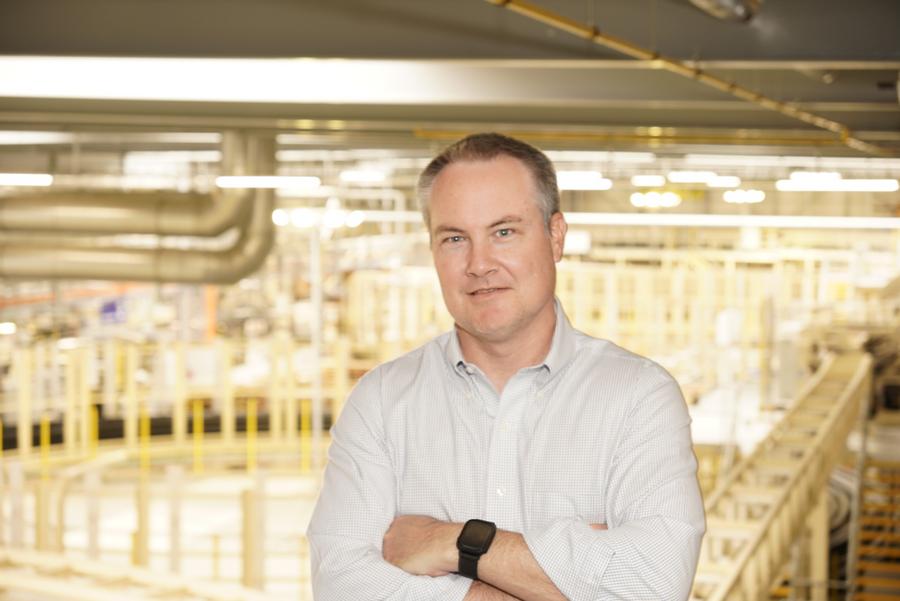With an established reputation for connecting the Brazilian energy sector to the global subsea industry ecosystem, Francisco Vianna joined Strohm as business development manager in Rio de Janeiro in 2022, bringing with him almost 20 years of experience in the sector. After just over a year in the job, he now shares his perspective on Strohm with us and how he believes the company will help unlock projects in challenging environments.
"I have been drawn to the offshore world since childhood, as I come from a family of sailors, and I have always been at sea with them. I learned to sail and have the ocean as part of my daily life. Therefore, in my professional life, the offshore world had to be present," explains Francisco.
"The offshore world in the energy sector is fascinating due to the complex structure of large projects and their interaction with the environment. There is also a complex interaction among the people involved and a significant requirement for teamwork. This teamwork, which is equally crucial for those sailing on long journeys, is something I find captivating."
During his time at Strohm, Francisco appreciated the passion demonstrated by his team in supporting the growth of the business in Brazil.
"It has been a pleasure working alongside the Strohm team in South America and around the world. Everyone I work with is enthusiastic about delivering a new and innovative solution to the market. The thermoplastic composite pipe (TCP) is poised to bring numerous benefits, helping overcome challenges and enhancing project efficiency.
"In offshore projects, asset integrity is a key factor, and the choice of equipment and suppliers is crucial. Introducing a new disruptive solution like TCP into a traditional market that has been using steel pipes for many years is challenging. However, our clients are recognizing the benefits that TCP can bring to their projects, and we are very excited. It's contagious to witness the region's growth and see so many experienced and skilled people interested in joining our team."
In his year at Strohm, Francisco has been further applying his experiences and his technical knowledge to support the company’s growth. Regarding the Brazilian region, Francisco added: "There are numerous challenges for an offshore project in Brazil, with the primary one being associated with the high CO2 content and high corrosion rates. Traditional infrastructures such as steel or metallic pipelines are prone to corrosion, and despite employing various protective methods, the issue persists, necessitating control measures or even replacement. This results in additional costs for the projects.
"In addition to the corrosion issue, the Brazilian market demands suppliers and products that bring flexibility to operations, short delivery times, reliability and preferably with an environmental concern for low carbon.
"These challenges demand a new solution, meaning it's not enough to improve what already exists but to think of something different. I am very excited about the possibility of Strohm's TCP meeting these demands. The TCP is lightweight, durable, flexible, and with the primary advantage of being non-corrosive. This means that the pipelines can be used for up to 30 years, reducing the need for replacements and providing a significant contribution to sustainability ambitions."
With the oil and gas industry increasingly focusing on sustainable practices and the renewable energy sector presenting new opportunities for supply chain companies, Francisco anticipates a global uptick in hydrogen projects. However, he acknowledges the industry's need to take steps to ensure the realization of these exciting projects and to help the sector achieve net-zero goals on an international scale.
"In regions like Brazil, we observe initiatives for significant renewable projects, such as offshore wind or even carbon capture, utilization and storage (CCUS). However, concerning hydrogen, most of them are still in the early stages compared to the progress of green energy projects in Europe. To bring these projects to life in Brazil, discussions on legislation and regulation are still necessary.”
Reflecting on Strohm’s next steps, Francisco said: “'As a global team, we are dedicated to shaping the future of the energy industry with our efficient and sustainable pipeline solution. I am genuinely excited to contribute to the viability of the sector, spanning both the traditional oil and gas market and the energy transition with the ultimate aim of achieving net-zero goals.'
